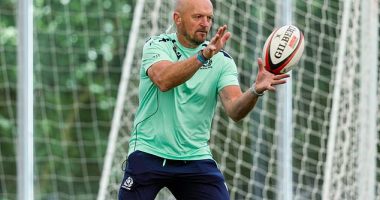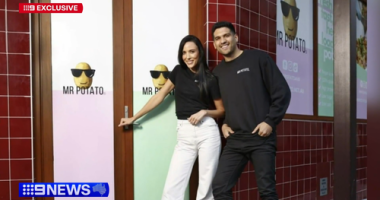Share this @internewscast.com
Supporting this view, Wayne Swan, the former federal treasurer responsible for increasing the guarantee from nine to 12 per cent, stated to SBS News that further efforts are needed to involve Australians in planning for retirement.
Currently serving as the chair of Cbus, an industry super fund, Swan commented: “I believe all superannuation funds recognize this challenge and strive to improve, yet there is always room for further development.”
What is happening with superannuation?
Now, he said, that system “finally matures”.

The superannuation guarantee has risen since 2012 to reach 12 per cent.
In a statement to mark the 1 July increase to 12 per cent, Keating said it “will guarantee personal super accumulations in excess of $3 million at retirement” for someone entering the workforce today.
“Superannuation is akin to Medicare in terms of being an Australian community standard, uniting everyone as part of the national economic family, where each individual is included,” he explained.
How did we get here?
In 1985, the Australian Council of Trade Unions, with the support of the then-Hawke government, presented a National Wage Case to the Conciliation and Arbitration Commission about a 3 per cent compulsory contribution for all Australian workers.
He said it would increase by 0.5 per cent each year between 2013 and 2019.

In 2010, then-treasurer Wayne Swan (pictured right) announced a plan to gradually increase the superannuation guarantee levy from 9 per cent to 12 per cent. Source: AAP / Alan Porritt
But two months after it rose to 9.25 per cent in 2013, Tony Abbott stormed to a landslide election victory — and followed through on an election promise to delay increases to the guarantee due to cost pressures on small businesses.
Starting in 2021, it rose by 0.5 per cent each year.
The 12 per cent milestone
“It gives access to growth assets to everyone in the community. From a building worker through to a professional in the office tower, everyone in Australia gets to own a piece of the wealth of this great country in a way that’s never before been possible,” he said.
“What visionaries they were, and what they have done to make our country not only a bigger and more successful economy, but a fairer one as well.”
What is a ‘comfortable retirement’?
This amount exceeds ASFA’s estimate of the $595,000 needed to afford a comfortable retirement for singles and $690,000 for couples.
ASFA defines a ‘comfortable’ retirement as someone who owns their home outright, is in good health, can afford top-level private health insurance, has a good car, and engages in a range of leisure and recreational activities, including taking one domestic trip a year and one international trip every seven years.
Business concerns
Luke Achterstraat, CEO, Council of Small Business Organisations Australia, said: “The increase of the superannuation guarantee comes at a time when award rates have also increased 3.5 per cent, national productivity is in decline, and payroll tax and workers’ compensation insurance will also increase.”

There are concerns that an increase to the superannuation guarantee levy and other changes that took effect on 1 July could negatively impact small businesses and further pressure their cash flow. Source: AAP
“This puts small businesses between a rock and a hard place, needing to either absorb or pass on these costs to consumers,” Achterstraat said.












